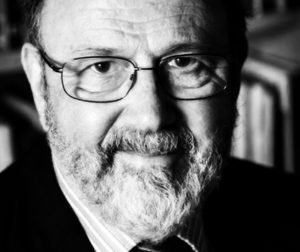 I was researching N. T. Wright’s view of the kingdom the other day and came across this quote about his way of thinking about the intermediate state. He rejects both the idea of soul sleep as well as heaven as our final reward. Instead, he put forth this way of thinking about it:
I was researching N. T. Wright’s view of the kingdom the other day and came across this quote about his way of thinking about the intermediate state. He rejects both the idea of soul sleep as well as heaven as our final reward. Instead, he put forth this way of thinking about it:
If we use the word [soul], many readers will get the impression that I believe that every human being comes already equipped with an immortal soul. I don’t believe that. Immortality is a gift of God in Christ, not an innate human capacity (see 1 Timothy 6.16)…to speak of the ‘soul’ can be a useful way of talking about personal continuity despite bodily discontinuity. But there are other ways of making that point. I remember hearing the great Cambridge physicist and theologian John Polkinghorne offering a contemporary way of saying what needs to be said: God will download our software on to his hardware, until the day comes when he gives us new hardware on which to run our own software once more. I’m comfortable with that image. It leaves vague what the New Testament leaves vague, the question of what precisely someone ‘is’ between bodily death and bodily resurrection. [N. T. Wright, For All the Saints? (Harrisburg, PA: Morehouse Publishing, 2003), pp. 72-73]
What do you think of this analogy? Perhaps if we add to it a “hibernate mode” this may both stay faithful to the dozens of scriptures that speak of death as sleep while simultaneously solving the thorny problem of sustained personal identity through the intermediate state.

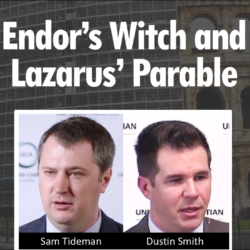
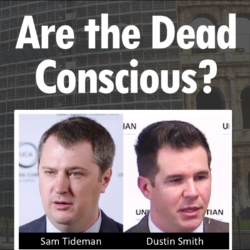
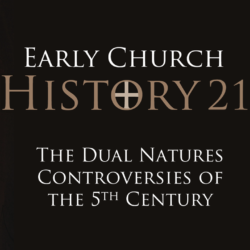


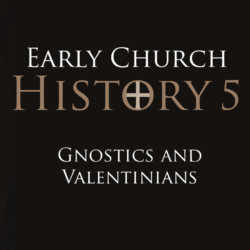
Well if Tom Wright can use the analogy, maybe I don’t have to feel embarrassed for saying in the past, that I’m counting on God to have a copy of me in his big “tape backup”. But that reference is dated I guess. I’ll bet God is way past tapes, I’m sure he uses the cloud…
I have used this analogy myself, although I grant I can’t prove it biblically. What I see in the regeneration is humanity 2.0. I know of some who object to this, claiming that we would then no longer be human. But then that begs the question of what it means to be human. It can’t be strictly physical characteristics because we would consider someone born without an arm or an eye to still be human. The primary characteristic that applies is the ability to reason and think like a human. Granted, some are born with mental handicaps, but that is because something is physically wrong, preventing them to think in the full range of normal human capacity, similar to having a deformed body part, and not because they are not really human. The only other characteristic that applies to all humans except Adam and Eve (because we obviously have to start at some point) is that all humans are born from a human mother.
I like the “hibernate mode” terminology. I will try to remember that one.
For those who are not granted immortality, their body is destroyed and so is their software (after the final judgment). They are completely deleted, no longer in the “recycle bin” where they would have had the potential to have been brought back.
I think this hardware and software analogy is worthy of more thought.
This topic has made me scratching my head in wonder too. How does death render my soul, me, non-existent but then later “I” get resurrected?
My life is hid with Christ in God. Col 3:3.
This is way over complicated. I feel that is a very poor analogy. When you are asleep during your life your soul does not flee from you. You do not dream throughout the entire night. So why in death is the idea that we sleep a thousand years or however long and awake to Christ as if only a day has passed. Death doesn’t need to render your soul. Your body is what deteriorates in the grave not your soul. So it seems this theological idea is perverse.
Sidi, All analogies break down at some point. The best single Bible passage I know of which describes the intermediate state is Rev. 6:9-11. In this passage, which is really part of John’s vision, the martyrs briefly awaken and cry out. But this is not necessarily much different than Abel’s blood crying out from the ground (Gen. 4:10). The blood and the martyrs are God’s reminders that a final justice is still needed. The martyrs are told they will be rewarded and are ordered to go back to sleep. So, they are not fully and continuously conscious living entities. Obviously, the martyrs are not enjoying heaven nor the intermediate state. If the super-Christian martyrs aren’t having a great time, why should we non-martyrs expect anything better? The dead are paused, asleep, waiting for their new bodies so they can be functional again.
Agreed. Good point!
Genesis 2:7 informs us that a “living soul” requires a body and the breath of life. Ezekiel 18 informs us: Ezekiel 18:3-4 “As I live,” declares the Lord God, “you are surely not going to use this proverb in Israel anymore. 4 “Behold, all souls are Mine; the soul of the father as well as the soul of the son is Mine. The soul who sins will die. NASB
David wrote:
Psalms 146:1-4
146 Praise the Lord!
Praise the Lord, O my soul!
2 I will praise the Lord while I live;
I will sing praises to my God while I have my being.
3 Do not trust in princes,
In mortal man, in whom there is no salvation.
4 His spirit departs, he returns to the earth;
In that very day his thoughts perish.
NASB
The soul is not immortal and since God will resurrect the righteous and the unrighteous for judgement why is it inconceivable He is incapable of resurrecting the whole person?
I like the software analogy. I think it will really help explain things…people really want to know where someone has ‘gone’ when they die even if they are not believers.
They naturally feel it is incredible that the person they knew doesn’t exist anymore.
Is more useful than ‘sleep’ because you tend to think of real sleep and nobody likes the idea of someone sleeping for thousands of years!
I like the analogy, but thint that Wright just invites to enter by the backdoor what he has just thrown away trough the front door, that is the idea of the soul. The reason for he disliking the word “soul” is given by him. But talking about the “software” or the “self” (as he does in another place) seems like giving a new name to and old horse.